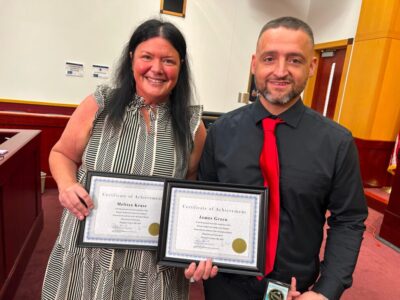Barrett’s ‘originalist’ stance is the only one that makes sense
Amy Coney Barrett, President Trump’s Supreme Court nominee, is an “originalist.” Given that originalism is a term coined by lawyers, it shouldn’t surprise anyone that there are many different flavors of originalism. But, as Barrett explained in her confirmation hearings, they all share the basic idea that the meaning of the Constitution can be found in the Constitution.
“So in English,” she explained, “that means that I interpret the Constitution as a law, that I interpret its text as text and I understand it to have the meaning that it had at the time people ratified it. So that meaning doesn’t change over time. And it’s not up to me to update it or infuse my own policy views into it.”
I don’t understand why this should be a difficult concept to understand. And yet for some people, it remains not only incomprehensible but utterly contemptible.
Dan Rather, who for decades at CBS News cast himself as a neutral reporter of facts, declared on Twitter the other day: “If you want to be an ‘originalist’ in law, maybe you should go all the way. Cooking on a hearth. Leeches for medicine. An old mule for transportation. Or maybe you can recognize that the world changes.”
Rep. Barbara Lee (D-Calif.) tweeted this gem of an insight: “An ‘originalist’ reading of the Constitution would disqualify Judge Barrett, or any woman, from serving on the Supreme Court or from owning property or voting. ‘Originalism’ is a cover for deeply unpopular & un-democratic policies, not some kind of serious judicial philosophy.”
Sen. Chris Murphy (D-Conn.) blurted out: “Women couldn’t vote. Slavery was legal. AR-15s and the internet and electric lights didn’t exist. But originalism.”
People who mock originalism subscribe to the view that the Constitution is a “living, breathing” document whose meaning changes with every generation. When I object to this idea, I often hear the kind of nonsense offered by Rather, Lee and Murphy: that if the Constitution didn’t change over time, Black people would still be in chains, women wouldn’t be able to vote, etc.
The problem is that they’re letting the “living Constitution” take credit for battles it didn’t win. Women have the vote because of the 19th Amendment. It was the 13th Amendment that ended slavery, not the good intentions of Supreme Court justices.
When you amend the Constitution, you’re changing its meaning according to the rules of the Constitution. No one “breathed” new meaning into the words; they added more words.
Now, I would argue that those new words were in the spirit of the ideas that gave birth to this country and the Constitution. But that’s another debate, and people are free to disagree.
——
Jonah Goldberg is editor-in-chief of The Dispatch
nd the host of The Remnant podcast.
His Twitter handle is @JonahDispatch.




